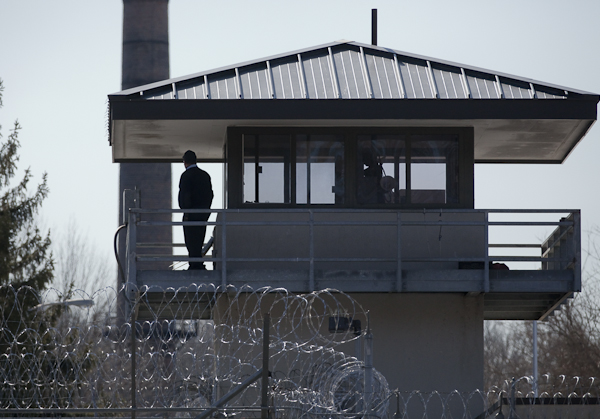“Gov. Hochul’s plan will not end our abusive prison labor system. New York must end the practice of forced labor and extend worker protections to all New Yorkers for the sake of our communities and families before we consider bringing private companies into the fold.”

Marc Fader
Bedford Hills Correctional FacilityDuring the intense heat of the summer of 1894, New York State reached an important milestone toward the complete abolition of slavery. At our sixth constitutional convention, we outlawed contract convict leasing, the selling of the labor of those incarcerated to private entities—a practice so deplorable that it was described as tantamount to Southern slavery.
Over 125 years ago we abolished the contracting of prison labor because it was inhumane and unfair. But this January, Gov. Kathy Hochul proposed a plan to change New York’s constitution to reauthorize the private utilization of incarcerated people.
The governor states that the program would “be voluntary and pay a competitive wage.” But the proposal does not address the foundational flaw that enshrines modern-day slavery for those incarcerated in New York—and while similar programs in other states have allowed for billions in corporate profit, formerly incarcerated people have reported never using the “marketable skills” learned upon release.
 CityViews are readers’ opinions, not those of City Limits. Add your voice today!
CityViews are readers’ opinions, not those of City Limits. Add your voice today!
Today, over 31,000 incarcerated New Yorkers are forced to work under the threat of punishment for as little as $0.10 per hour—before their wages are garnished to pay fines and fees. The majority of these workers earn $0.33 or less per hour staffing hundreds of jobs, from running in-prison programming to groundskeeping and laundry—wages that can only be called “slave wages.”
This is because of an insidious exception in our state’s constitution, which allows New York to “require” the labor of those it incarcerates for state purposes.
The forced labor exception emboldens exploitation and cruelty. Formerly incarcerated individuals have described retaliation and severe punishments, including solitary confinement, for refusing to work dangerous jobs or to staff assignments for which they have no training. Bb, a formerly incarcerated woman at Albion Correctional, witnessed constant sexual advances and brutalization by guards who dangled job assignments as a weapon. Bb told advocates that after refusing to perform sexual favors, she was shut out of her preferred work assignments. “For a lot of the jobs that I tried to get, they wouldn’t let me, just because I wouldn’t do what they wanted me to do for them.”
An incarcerated person who braves this system still cannot meet their own needs with the meager wages they receive. Inflated in-prison prices, including the exorbitant cost of communicating with loved ones—a 20-minute phone call costs $0.86; a single postage stamp costs $0.33—mean that those inside must rely on their families for financial support. As a result, one in three families supporting an incarcerated loved one go into debt, according to the Ella Baker Center for Human Rights, a burden borne chiefly by communities of color across our state.
At The Legal Aid Society, we fight for New Yorkers who experience wage theft and workplace safety violations. At Citizen Action of New York, we battle against the forces of racism and capitalism in order to end our current system of mass incarceration. We agree with Gov. Hochul that incarcerated New Yorkers deserve better work opportunities and significantly higher pay.
It took a global crisis to finally pull back the curtain on our exploitative prison labor system. From the earliest days of the pandemic, incarcerated people labored to produce the hand sanitizer and other PPE needed by their fellow New Yorkers, even while they were prohibited from accessing these life-saving products themselves.
But Gov. Hochul’s plan will not end our abusive prison labor system. New York must end the practice of forced labor and extend worker protections to all New Yorkers for the sake of our communities and families before we consider bringing private companies into the fold.
The Freedom from Forced Labor Act and the Fairness and Opportunity for Incarcerated Workers Act, sponsored by Senator Zellnor Myrie (D-20) and Assemblymember Harvey Epstein (D-74) would achieve these two goals.
Our state motto, Excelsior, is Latin forever upward. We demand criminal legal reform that helps move New York forward, not back to the past.
Jackie Goldzweig Panitz is a paralegal casehandler with the Employment Law Unit at The Legal Aid Society, and Rosemary Rivera is the executive director of Citizen Action NY. Legal Aid and Citizen Action NY serve as campaign leaders—along with Color of Change and the New York Civil Liberties Union—of 13th Forward, a broad coalition of advocates and organizations fighting to end the forced labor exception in New York’s constitution and for fair wages for incarcerated workers.








